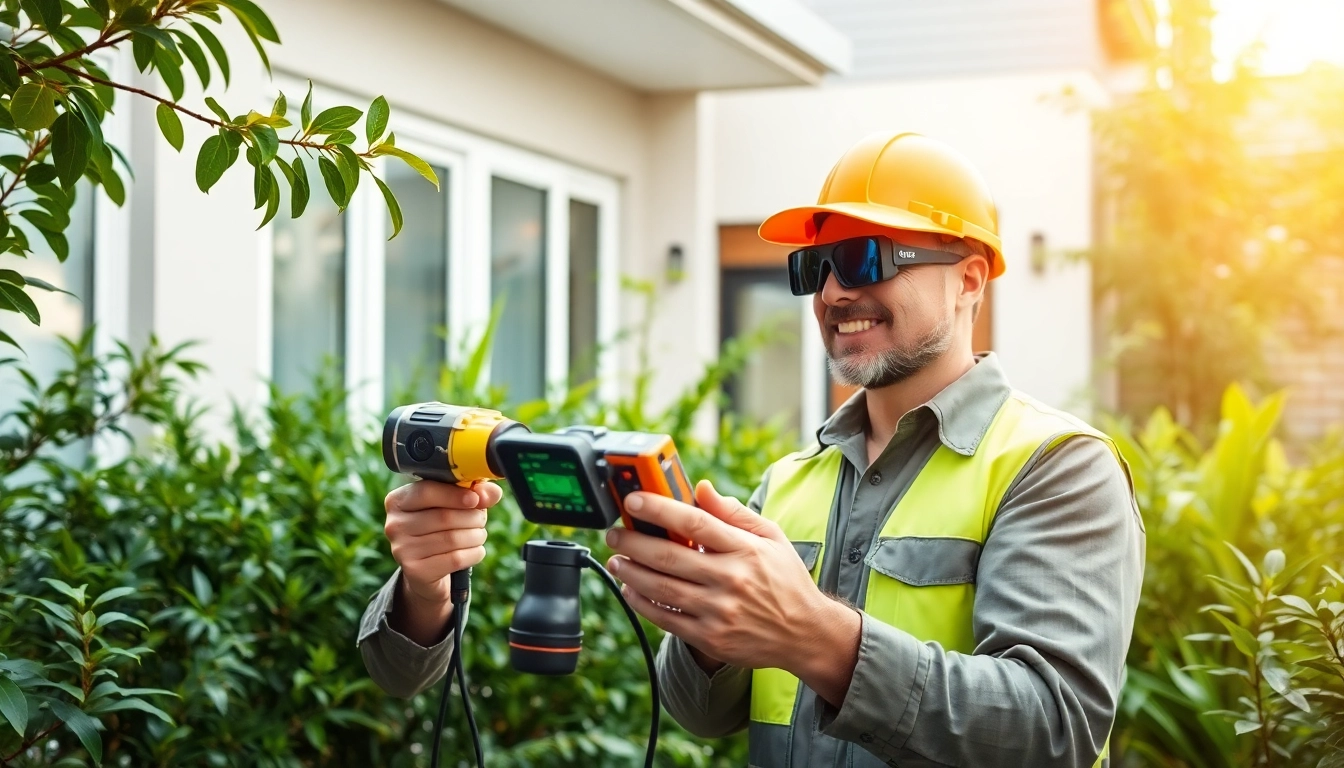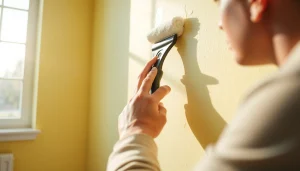Essential Leak Detection Specialist Insights for Homeowners

Understanding the Role of Leak Detection Specialist
What is a Leak Detection Specialist?
A Leak Detection Specialist is a trained professional who focuses on identifying and addressing leaks in various systems, especially plumbing and gas lines. Their expertise lies in pinpointing the source of leaks that may not be immediately visible to homeowners or property managers. By utilizing advanced tools and techniques, these specialists can effectively minimize damage and ensure that potential leak problems are resolved quickly and efficiently. This not only helps to reduce repair costs but also safeguards the structural integrity of properties.
Key Skills and Certifications
To excel in their field, leak detection specialists must possess a unique blend of technical skills and knowledge. Firstly, they usually hold certifications that may include plumbing licenses or specific leak detection training certifications. These credentials demonstrate their understanding of plumbing systems and state-of-the-art leak detection technologies. Effective problem-solving skills, attention to detail, and strong analytical abilities are also essential. Furthermore, being familiar with building codes, safety regulations, and environmental issues related to leaks can significantly aid specialists in their work.
Importance of Professional Leak Detection
Engaging a professional for leak detection is crucial as it can prevent significant damage to properties. Many leaks can start small but, if left untreated, can lead to extensive water damage, mold infestation, and costly repairs. Professionals use non-invasive methods to locate leaks, which reduces the need for destructive measures such as tearing down walls or digging up floors. Moreover, timely intervention by a leak detection specialist ensures water resources are conserved and saves homeowners from incurring hefty water bills due to unnoticed leaks.
Common Types of Leaks and Their Indicators
Identifying Water Pipe Leaks
Water pipe leaks can often go unnoticed for a long time due to their hidden locations. However, there are several indicators that homeowners can watch for. Unexplained increases in water bills, damp spots on walls or ceilings, and the sound of dripping water when all fixtures are turned off are strong signs of a potential leak. If these symptoms are evident, it is wise to call a leak detection specialist who can employ advanced detection methods, such as thermal imaging, to pinpoint the exact leak location without invasive measures.
Recognizing Gas Line Leaks
Gas line leaks pose significant safety risks, making early detection critical. Homeowners should be aware of signs such as a distinct smell of gas, hissing or whistling sounds near gas lines, and even unexplained physical symptoms like dizziness or nausea among occupants. Professional leak detection specialists are equipped to handle gas leaks safely, using specialized gas leak detectors to locate and repair issues effectively. Immediate service is essential to mitigate risks associated with gas leakages.
Signs of Hidden Plumbing Issues
Hidden plumbing issues can arise due to various factors, including aging pipes, high water pressure, or environmental conditions. Look out for multiple signs like recurrent drainage issues, consistent musty odors in certain areas, and foundation cracks. A leak detection specialist can investigate these indications, often using non-invasive techniques to ascertain the root cause and offer suitable solutions. Early detection ensures that problems are addressed before they escalate into major repairs.
Advanced Techniques Used by Leak Detection Specialist
Non-Invasive Detection Methods
Non-invasive detection methods are paramount in today’s leak detection services. Techniques like acoustic listening devices can pick up sounds from leaking pipes that are otherwise inaudible to the human ear. Additionally, moisture meters can gauge levels in walls and floors without causing damage. These methods allow specialists to pinpoint leaks accurately, ensuring repairs are made efficiently and without unnecessary disruption to a home or business.
Use of Technology in Leak Detection
Modern technology has vastly improved leak detection capabilities. Infrared thermography, for instance, allows specialists to see temperature variations in building materials, indicating the presence of moisture. CCTV camera inspections provide visual insight into the interior of plumbing systems, enabling experts to assess the condition of pipes. These technological advancements ensure that leaks can be detected more efficiently and accurately than ever before.
Benefits of Professional Tools
The tools used by leak detection specialists are integral to their effectiveness. Professional-grade equipment, such as high-definition cameras, electronic leak detection devices, and ground penetrating radar, provide more precise readings than standard residential tools. Using these advanced tools, specialists can mitigate the risk of unnecessary excavation or disruption, saving homeowners both time and money while ensuring an accurate diagnosis of the problem.
Preventative Measures and Maintenance Tips
Regular Inspections from a Leak Detection Specialist
One of the best ways to ensure that leak issues are caught early is through regular inspections. Leak detection specialists recommend scheduling annual or bi-annual checks to assess the health of plumbing and gas systems. During these inspections, they can identify vulnerabilities and potential future leak sources before they become real problems. This proactive approach can save property owners significant repair costs over time.
How to Prevent Water Damage in Your Home
Preventing water damage starts with understanding the plumbing system in your home. Regularly checking for wear and tear on pipes and connections, keeping gutters clear, and promptly fixing small leaks can make a big difference. Installation of water leak alarms can provide additional protection, alerting homeowners to leaks before they cause damage. Additionally, ensuring proper drainage around the home will help reduce water intrusion and potential leaks.
Best Practices for Homeowners
Homeowners should adopt several best practices regarding leak maintenance and detection. Familiarizing oneself with the property’s plumbing layout can help in identifying problem areas. Keeping an eye on water bills and understanding what constitutes a ‘normal’ bill can alert owners to potential issues. Establishing a good relationship with a local leak detection specialist enables quick action in emergencies, ensuring that leaks are handled efficiently and effectively when they do occur.
Choosing the Right Leak Detection Specialist
Factors to Consider When Hiring
When selecting a leak detection specialist, homeowners should consider several critical factors. Experience and reputation within the community can provide insight into a specialist’s reliability. Checking for valid certifications and licenses ensures that the contractor adheres to regional regulations and standards. Additionally, researching reviews and testimonials can offer valuable information about past client satisfaction and service quality.
Questions to Ask Potential Specialists
Before hiring a leak detection specialist, it is beneficial to ask key questions that provide clarity on their services and practices. Inquire about their experience with specific types of leaks, the technology they use, and their approach to leak detection. Understanding their process for diagnosing and repairing leaks, as well as their warranty or guarantee on work performed, can also influence the decision-making process.
Understanding Cost and Value in Leak Detection Services
Leak detection service costs can vary widely based on the type of services provided, geographical location, and the complexity of the issues at hand. It’s important to understand the value associated with these costs. Investing in a professional leak detection service often leads to long-term savings by preventing significant damages. Homeowners should seek detailed estimates that outline service scope, equipment used, and expected outcomes to adequately assess value.





